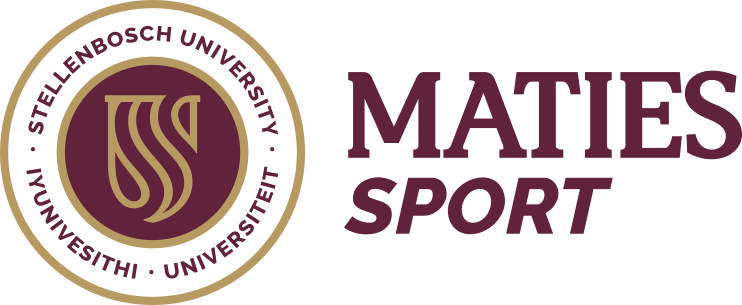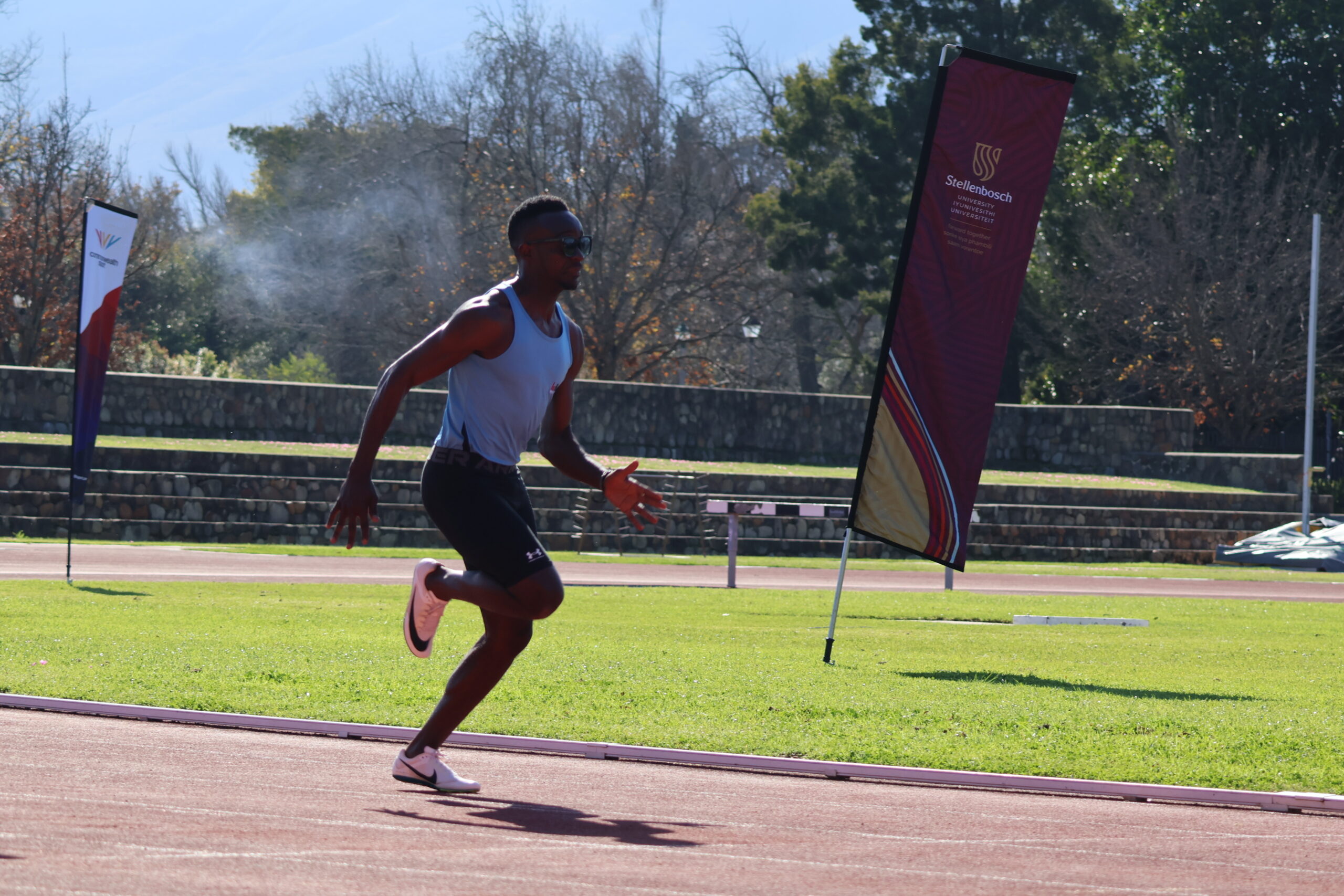SU-GAPS Programme focuses on “developing the athletes in our care”
There is no justification for African para-athletes to arrive at international multi-sports events to proudly represent their countries, only to perform poorly because there has been too little investment in their development.
Sending athletes, whether abled or disabled, to these events without sufficient input into their development is an insult to the country, its leaders, and the athletes themselves.
This was the over-riding sentiment at a gathering of key role players involved in the Commonwealth Sport GAPS (Gather, Adjust, Prepare, Sustain) programme at an event held at Stellenbosch University’s (SU) Coetzenburg Centre on 23 July 2025.
The event, titled Inside GAPS: Powering Inclusive Sport for a Better Commonwealth, took place exactly a year before the 2026 Commonwealth Games kick off in Glasgow, Scotland.
The friends of GAPS interacted with 38 athletes and coaches from 13 Commonwealth Games Associations (CGAs) who participated in the week-long GAPS Africa Stellenbosch 2025 Camp from 19 to 26 July. The athletes showcased their talents and the hard work of the coaches in a powerlifting and athletics competition during the event.
The camp focused on upskilling athletes and coaches to prepare them for the Para-Athletics and Para-Powerlifting events in Glasgow next year and other competitions.
The GAPS initiative champions equity, inclusion and opportunity for para-athletes and coaches from resource-challenged Commonwealth nations, which have, historically, been under-represented at the games.
Maties Sport and SU have partnered in the GAPS Africa initiative, in close collaboration with African CGAs and National Paralympic Committees since 2019 and recently signed a ten-year renewal MOU with the Commonwealth Games Federation GAPS Africa program, to continue this partnership.
“SU is proud to be the university partner of the Commonwealth Games Federation GAPS in Africa program. We are excited to confirm the extension of our MOU, marking our continued collaboration since 2019, as the anchor delivery and service provision partner.
Maties Sport is honoured to host the July 2025 GAPS Africa camp, as we acknowledge the vital role we play in advancing para-sport development in Africa,” said Mrs Ilhaam Groenewald, Chief Director, Maties Sport. “We believe in empowering athletes and coaches through education, collaboration and world-class facilities access and service delivery.”
In an emotive address, Commonwealth Sport Life Vice-President, Gideon Sam, stressed the importance of “developing those who are in our care”.
“We cannot have people marching at the opening ceremonies with all the glitter … but when you check the performances, it stinks because nothing’s been done to support them.”
Sam said key stakeholders in the Commonwealth Games had decided to address the situation and come up with GAPS. “The most important thing was to stop the window dressing.”
“When we started gathering information … it became clear that if you have a disability in the African context, you must be hidden away. Our view was to bring those people into the limelight, and how successful they have been.”
Sam paid warm tribute to SU’s contribution to the programme, saying Commonwealth Sport would not have been able to run the GAPS programme alone.
Keagan van Aarde, High Performance Senior Manager at SU, said the GAPS collaboration was an example of “how strategic alignment and partnership can transform lives”.
“It’s a huge honour to be part of this camp, and to help empower the athletes and coaches by sharing knowledge.”
Van Aarde said the GAPS programme, with its focus on inclusivity, transforming lives and building unity across the Commonwealth, fits in with SU’s vice-chancellor, Professor Deresh Ramjugernath’s vision of being a leading university in Africa. “Sport can be a leading social change vehicle towards achieving this.”
Ellen Barwise, director of Development and CGA relations, said the GAPS programme began “because we had a dream to ensure every Commonwealth country could have an athlete competing at our games in para sport. When the programme started, only about 21 nations were participating. “We said if we are going to be truly inclusive, that’s not good enough. We want this programme to help developing countries to create their own sustainable systems so that ultimately they can have athletes at the Commonwealth Games and beyond.”
Barwise said the first GAPS camp was held in 2022 at SU, and since then, GAPS has hosted five camps on the continent. “From those camps, we had 33 athletes competing in the Commonwealth Games in Birmingham, and we came home with nine medals and a world record. At our 2023 Trinidad and Tobago Youth Games, we had 12 GAPS athletes, and we got six medals.
“But what we’re most proud of is that, through these camps, we are building a GAPS family who, regardless of which country they represent, care deeply about each other and who cheer each other on.”
Ezera Tshabangu, regional development manager for Africa and Europe Commonwealth Sport, said: “As Commonwealth Sport, we are the only international multisport organisation that’s inclusive in terms of the games programme, where we include para-athletes and coaches. It is therefore important that all the 74 CGAs across the Commonwealth are represented at the GAPS camps.”
Paralympic sprinter, Charl du Toit, who won two gold medals in the 2016 Summer Olympics, said the importance of “proper structures” in athletics programmes cannot be overemphasised. “In Africa, we have a lot of talent. We don’t always have the structure and people in place to take that talent to the next level. This is what the GAPS programme is doing – providing a structure where athletes can believe in themselves, train together and see themselves as high-performing athletes.”
Toyin Ogunnefun, a powerlifter from Nigeria, said he learnt a great deal in his first GAPS camp. “Besides learning technical skills, we had lectures on sports nutrition and anti-doping. We were encouraged to reflect on our lives and the impact we have on others. Besides my dream of becoming a champion, this camp made me want to become a leader who helps bring physically challenged people into the limelight.”
Gift Chola, a powerlifter from Zambia, said she learnt “the do’s and don’ts on how to lie on the bench; how to hold the bar, and how not to have a bad lift. I really enjoyed the talks about nutrition and how to boost our energy,” she said.
Ruth Chirwa, a powerlifter from Malawi, said the camp had helped her to connect with different people and to have more confidence in herself and her abilities.
Karuli Petrus, a pentathlon athlete from Namibia, said he’d never experienced “anything like” the GAPS sports camp. “It was a great experience to spend time with fellow athletes and to compare our experiences. I feel I’ve made friends for life,” he said.
Elisabeth Barry, a para-powerlifting coach from Port Elizabeth, described the event as an “awesome” learning experience for both athletes and coaches.
“It’s been great to be among other para-powerlifting coaches. We face similar challenges in our respective countries, including funding for our athletes, access to gyms, transportation, and competition expenses, as well as securing appropriate equipment and funding. We’ve had many discussions and have learnt a great deal from each other.
“It has also been wonderful to watch the athletes bonding, learning from each other, and growing from the experience of this camp.”
Keagan Van Aarde welcomed the ten-year renewal of the MOU, saying it is an opportunity for SU and Maties to demonstrate their commitment to the GAPS agenda.
SU and Maties Sport have long been national leaders in inclusive sport development. They are perfectly placed to leverage their world-class facilities, medical science infrastructure, and comprehensive athlete-and-coach development expertise to build capacity and deliver training and education that truly transform para-athlete sport.
Not only will the continued MOU offer sustainability for para-sport development, but it will also set a global example in terms of international collaboration, research and impact.
By Sue Segar


